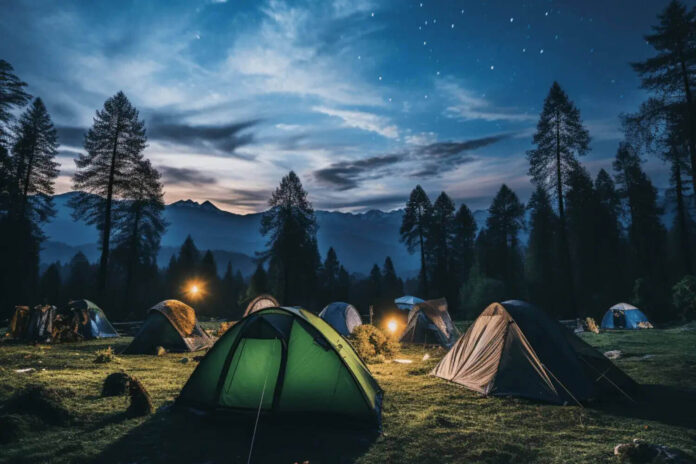Embracing the wilderness through camping is a thrilling adventure that reconnects you with nature, offers a break from the digital world, and tests your self-sufficiency. However, the beauty and tranquillity of nature come with inherent risks and challenges. Being well-prepared, with essentials like tent pegs, and aware of safety precautions is crucial for ensuring a memorable and secure camping experience. So, this guide will walk you through essential tips and strategies for staying safe and prepared in the great outdoors.
Plan Ahead and Inform Someone
Before you venture into the wilderness, thorough planning is essential. Research your camping destination, understand the weather conditions, and familiarise yourself with the local wildlife. It’s also vital to inform someone—a family member or friend—of your camping plans, including your destination and expected return time. This simple step can be lifesaving in case of an unexpected emergency.
Pack the Essentials
Packing the right gear is the cornerstone of a successful camping trip. Essential items include a reliable tent with sturdy tent pegs to withstand unexpected weather, a sleeping bag suited for the temperature, a first aid kit, sufficient food and water supplies, a map and compass (or GPS), and a multi-tool or knife. Also, don’t forget personal items like medications, sunscreen, and insect repellent.
Prioritise Your Shelter
Your tent is your home away from home in the wilderness, so choose a tent that is appropriate for the season and conditions you expect to face. When setting up camp, look for a flat, dry area away from water bodies to avoid flooding. Also, use high-quality tent pegs to secure your tent against strong winds. A well-set-up shelter can make or break your camping experience.
Stay Hydrated and Well-Fed
Water is your most critical resource while camping. So, always have a plan for accessing clean water, whether it’s through purification tablets, a water filter, or boiling. For food, pack nutrient-dense, non-perishable items that require minimal preparation. Proper nutrition and hydration are vital for maintaining your energy and health in the wilderness.
Be Fire Smart
A campfire is a quintessential part of the camping experience, providing warmth, light, and a means to cook food. However, it’s also a significant responsibility. So, always build fires in designated areas, keep water or a shovel nearby to extinguish flames, and never leave a fire unattended. Before leaving, ensure the fire is completely out to prevent wildfires.
Respect Wildlife
Encountering wildlife is a possibility in the wilderness. As such, maintain a safe distance from animals and avoid feeding them to prevent unwanted attention. Moreover, store food securely and dispose of waste properly to deter animals from your campsite. Understanding how to react to wildlife encounters can help avoid dangerous situations.
Navigate Safely
Getting lost is a risk when exploring unfamiliar terrain, so always carry a map, compass, or GPS device when venturing away from your campsite. Know how to use them and plan your route carefully. If you do get lost, stay calm, stay put, and signal for help rather than wandering further.
Prepare for Emergencies
Despite the best planning, emergencies can happen. So, equip yourself with basic first aid knowledge and carry a comprehensive first aid kit. Include items for treating cuts, burns, and sprains, as well as any personal medications. Learning how to signal for help, whether through a whistle, mirror, or flare, can also be invaluable.
Leave No Trace
Respecting nature is paramount for preserving its beauty for future generations. Hence, follow the Leave No Trace principles by minimising your impact on the environment. Pack out all trash, leave what you find, and avoid damaging the natural habitat. This ethos ensures that the wilderness remains a sanctuary for both wildlife and fellow adventurers.
Conclusion
Camping in the wilderness is an enriching experience that offers an escape from the ordinary and a chance to challenge oneself. As such, you can ensure a safe and enjoyable adventure by planning ahead, packing appropriately, respecting nature, and preparing for emergencies. The wilderness demands respect, so approach your camping trip with caution, preparation, and a sense of responsibility. With these tips and a spirit of adventure, you’re ready to explore the great outdoors while staying safe and prepared. Happy camping!





































